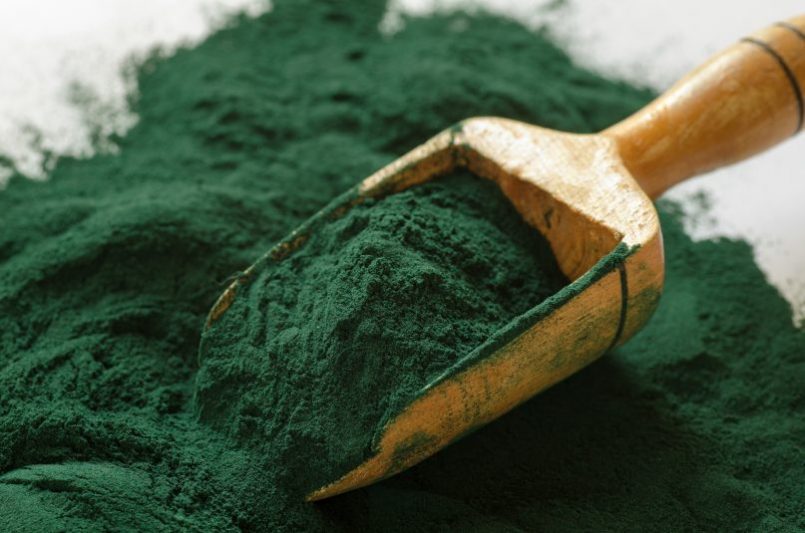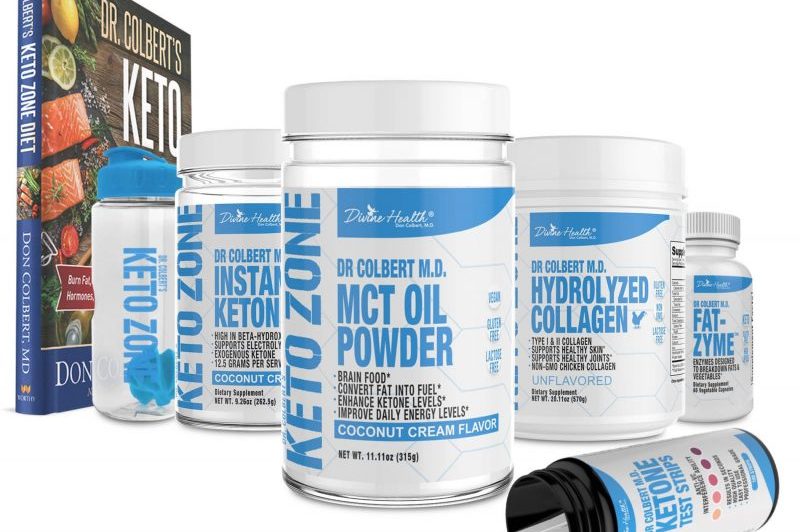Want better heart health, more energy, cancer-fighting aid, and more? We all do.
It may be time to add spirulina.
Spirulina is a tiny algae organism that grows in both fresh and saltwater.
It’s a type of cyanobacteria, often referred to as blue-green algae, and only contains one cell. Like all plants, spirulina is a living, energy-producing source of nutrition.
Here are great reasons to add spirulina, and how to get past the algae taste.
8 Reasons to Add Spirulina to Your Diet Today
1. Small Doses of Spirulina Pack Big Nutrition
Spirulina is a nutrient-packed food.
In fact, just one tablespoon of spirulina packs 4 grams of highly absorbable protein, 21% daily copper needs, 11% daily iron needs, B-vitamins, magnesium, potassium, and more (1).
All this with just 1.7 grams of net carbs.
What’s more, like many kinds of seafood, spirulina contains omega-3 fats. Every bite of spirulina contains 1.5 grams of omega-3s for every 1.0 grams of omega-6s; which can help you get a good omega-3 to omega-6 ratio each day.
2. Spirulina is a Strong Antioxidant and Anti-Inflammatory
We need antioxidant and anti-inflammatory foods since our bodies are constantly bombarded with free radicals, oxidative damage, and inflammation each day.
Luckily, spirulina fits the bill.
Spirulina contains an active component called phycocyanin, which is an antioxidant that fights free radicals and decreases inflammatory signaling molecules in the body (2).
3. Spirulina Combats Metal Toxicity in Your Body and Brain
In animal studies, the antioxidants in spirulina are responsible for playing a protective role against the toxicity induced by metals, insecticides, and more. (3).
If you’re worried about any of these toxicities, add spirulina.
4. Spirulina is Heart Healthy
1. Spirulina can reduce bad cholesterol and oxidation of cholesterol in the arteries (oxidation leads to artery-clogging plaques).
Again, the antioxidants in spirulina play a protective role.
Spirulina’s antioxidants effectively reduce lipid oxidants. In fact, in one study in 37 people with Type 2 diabetes, 8 grams of spirulina per day significantly reduced markers of oxidative damage while increasing antioxidant enzymes in the blood (4).
2. Spirulina reduces harmful triglycerides.
In fact, one study of people with high cholesterol determined 1 gram of spirulina per day lowered triglycerides by 16.3% and “bad” LDL by 10.1% (5).
3. Spirulina can decrease blood pressure.
Studies have shown 4.5 grams per day of spirulina can reduce blood pressure in individuals with normal and high levels (6, 7).
How? Spirulina increases the production of nitric oxide, similar to beets and a few other vegetables. Nitric oxide causes dilation and relaxation of vessels, reducing blood pressure (8).
Together, these 3 cardiovascular benefits of spirulina make it a super heart-healthy food!
5. Spirulina May Help You Become Stronger and Faster
While exercise is also great for your heart, the more you breathe and increase reaction in your body, the more free radicals are generated. Free radicals can cause damage and fatigue.
Spirulina can help.
First, it fights free radicals.
Then, it does even more for athletes. Some studies pointed to improved oxidation of muscles through nitric oxide increased. Two studies have shown that spirulina enhanced endurance, significantly delaying fatigue during exercise (9, 10).
6. Spirulina Fights Cancer Cells
Like many green living things, spirulina may have anti-cancer properties.
Animal studies have shown spirulina can reduce cancer cell occurrence and tumor size (11).
Another study examined 87 people from India with precancerous oral lesions. Forty-five percent of the participants who took 1 gram of spirulina per day for one year, no longer had the lesions, compared to 7% of the placebo group (12). What’s more, when the participants discontinued spirulina, many of them developed lesions again.
7. Spirulina Supports Energy and Iron Levels
Anemia, a reduction in hemoglobin or red blood cells in the blood, can stop you in your tracks with fatigue and weakness.
Anemia is fairly common in older adults, athletes, vegetarians, and more.
While the exact mechanism is unknown, researchers have found adding spirulina daily improves immune functions and anemia status in older adults with anemia (13).
8. Spirulina Reduces Allergy Symptoms
If you’re allergic to pollen, dust mites, pet dander, or other common allergens, and experience allergic rhinitis (nasal symptoms), spirulina may help.
In fact, a study of over 100 participants with allergic rhinitis found that 2 grams of spirulina per day significantly reduced nasal symptoms (14).
How to Take Spirulina
The easiest way to take spirulina is in a supplemental powder, and your best option is Divine Health’s Fermented Green Supremefood.
Why?
With each serving, you’ll get 2 grams spirulina and other amazing greens. What’s more, some of the greens are fermented, significantly increasing their absorption in the body.
And best of all, it tastes good. One of the toughest parts about taking spirulina consistently is the taste – adding Fermented Green Supremefood to smoothie recipes makes it easy.
And, here are more recipes you can use with it!
Bottom Line
Spirulina is convincingly great for you. The hardest part is taking it in a form that’s easy and tastes good. Try Divine Health’s Fermented Green Supremefoood. You’ll add spirulina, plus other great fermented foods to improve your health, energy, and well-being!

















